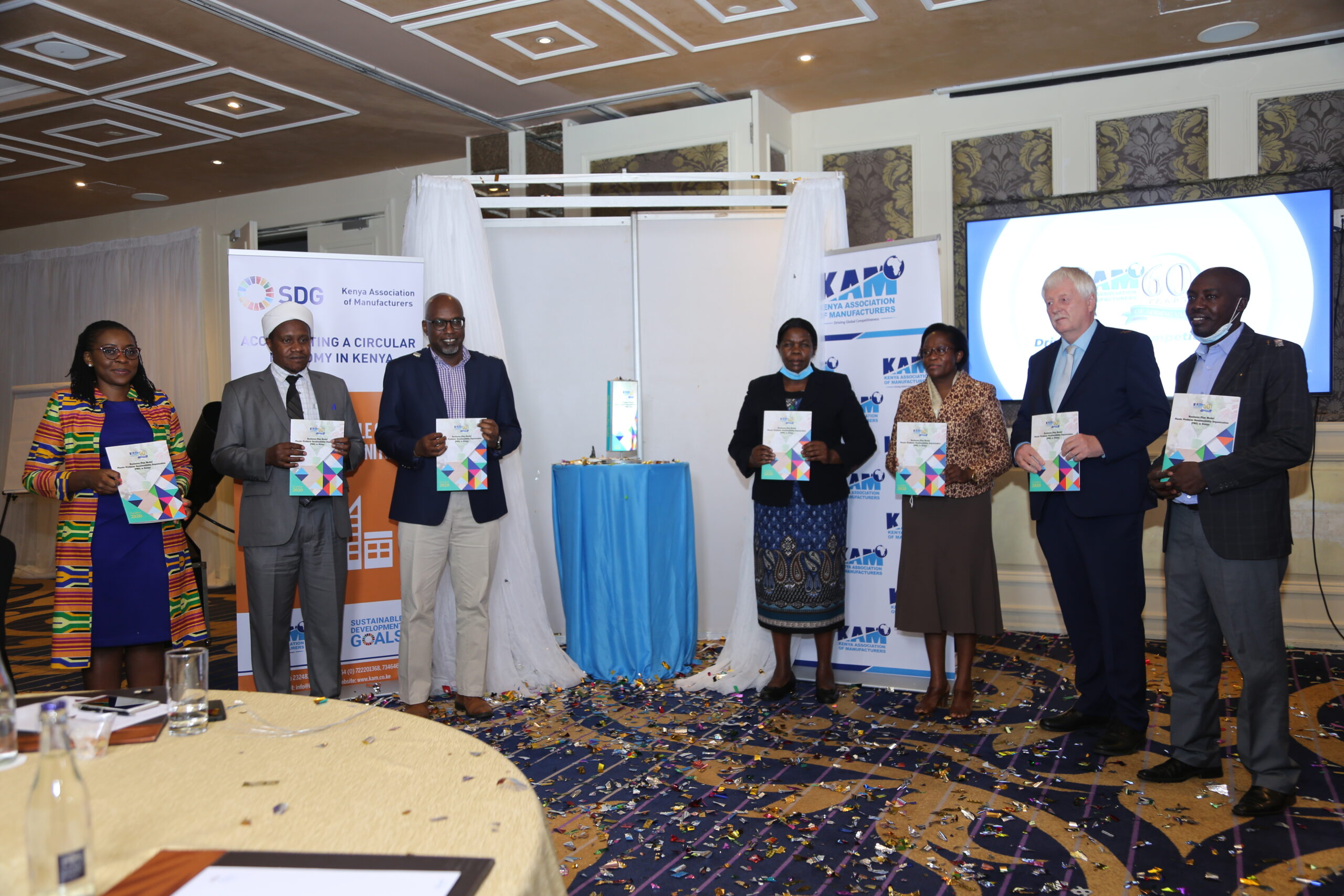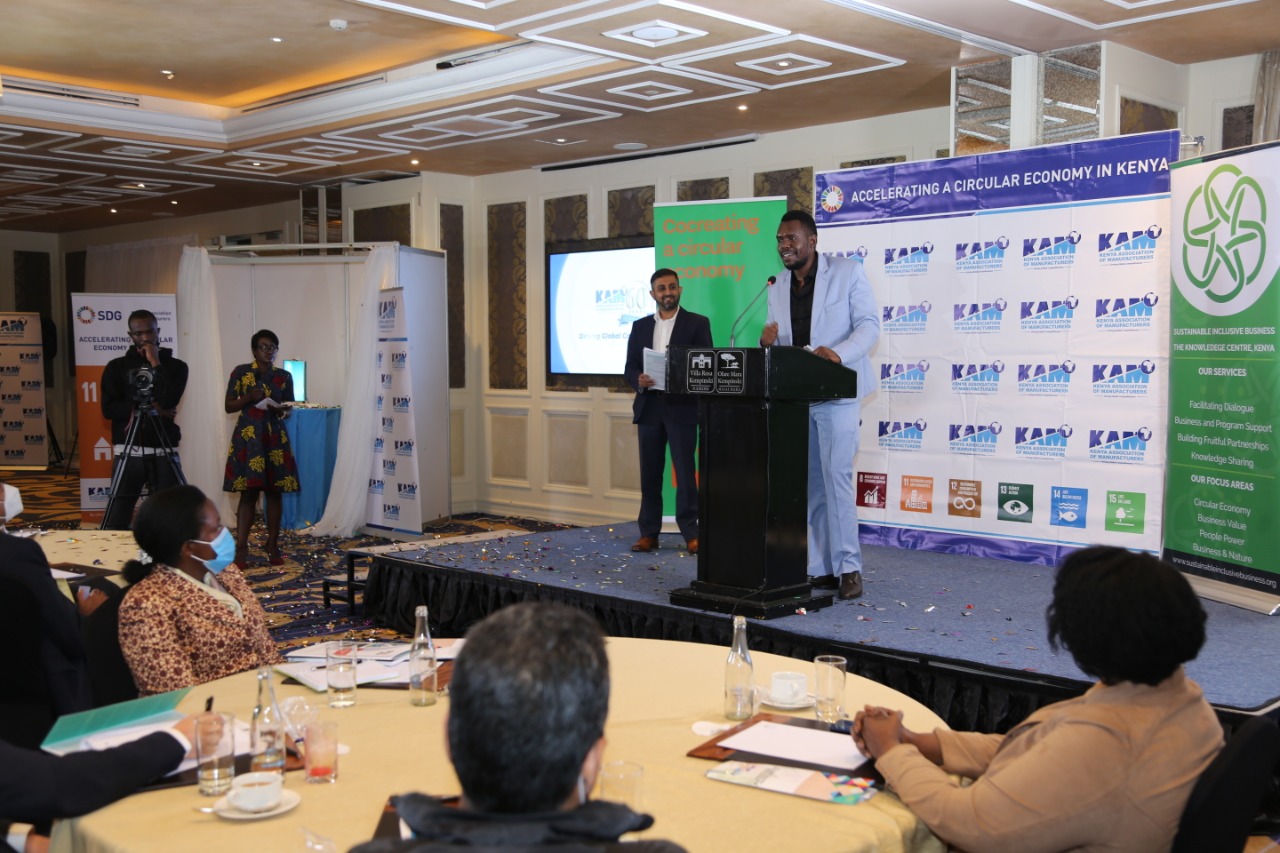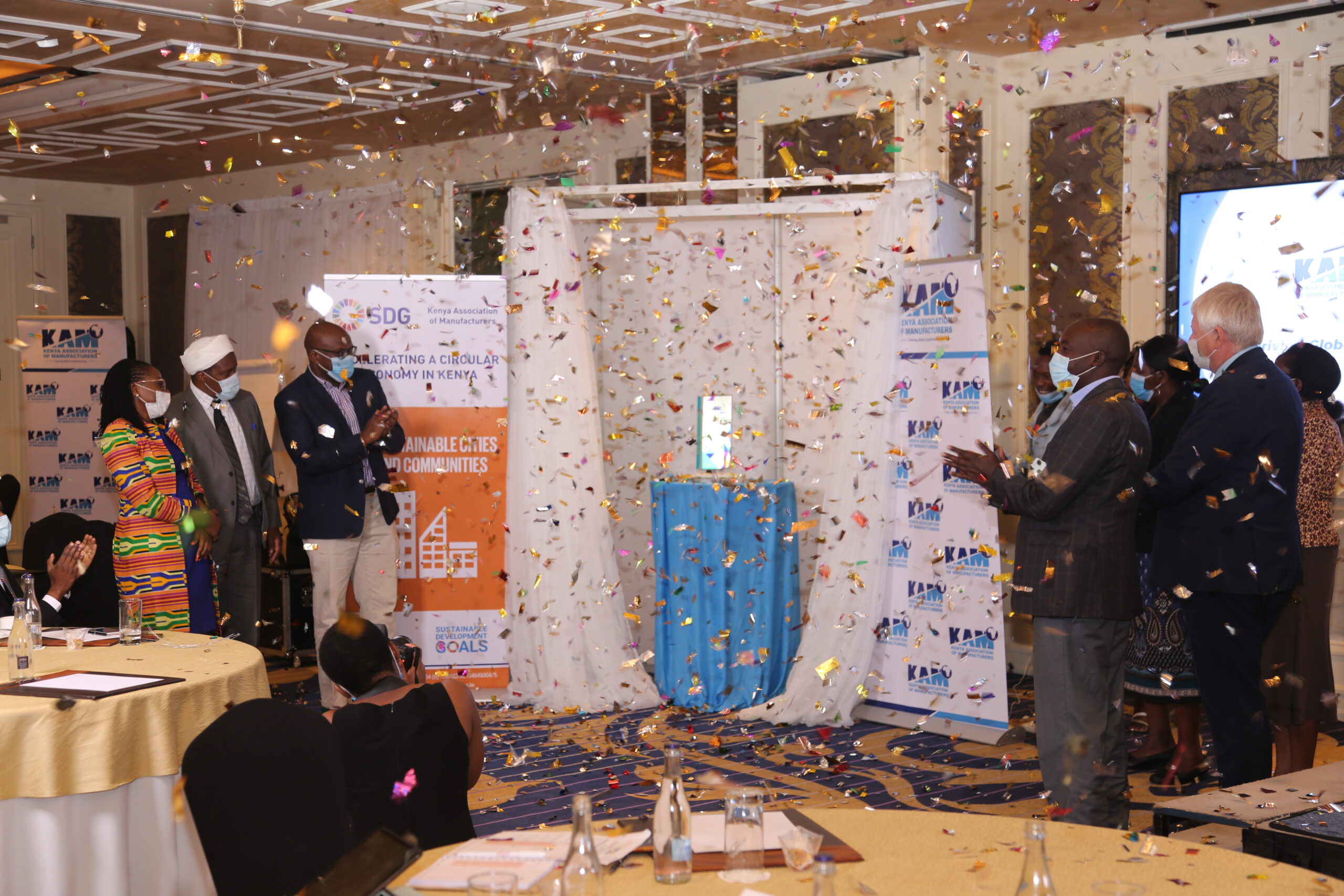Wednesday 14th October 2020…The Kenya Association of Manufacturers (KAM) in collaboration with the Ministry of Environment and Forestry (MoEF) and Sustainable Inclusive Business under the Kenya Private Sector Alliance (KEPSA) Foundation, has officially launched the Business Plan Model for a Producer Responsibility Organization (PRO), the first of its kind in the country. This is part of the ministry’s and the private sector’s aggressive and continued efforts in addressing Kenya’s challenges in waste disposal and especially plastics.
Speaking during the launch event held at Kempinski Hotel in Nairobi, the Director of Education and Awareness at the Ministry of Environment and Forestry Dr Ayub Macharia, who was representing the Principal Secretary Dr. Chris Kiptoo, said that “The Environmental Management and Coordination (Extended Producer Responsibility) regulations 2020 provides a framework for the sector to form Producer Responsibly Organizations (PROs) for the 17 waste streams. The development of a business model is a critical step towards the establishment of such an institution; and the government is keen on providing necessary support at policy and implementation level to support the swift shift from a liner economy to a more sustainable circular economy.”

The Business Plan Model is tailored to the Kenyan framework and taking into consideration current draft regulations for the Extended Producer Responsibility (EPR). The role of the PRO, which is a membership organization, will be to ensure plastics are collected, sorted and recycled after use. In this case, the private sector will bear significant responsibility for the post-consumer phase of single-use goods under the EPR scheme. This includes both financial and/or physical, such as the cost of disposing and or recycling post-consumer goods; a factor that is expected to promote proper waste management practices among Kenyan businesses.
This aspect of sustainable business is critical to the growth of not only the plastics sector but to the manufacturing industry and Kenyan economy as a whole. By allowing the producers to unite and consolidate their efforts, it is anticipated that synergy will be achieved and their collective effort will be more than the sum of the producers’ individual efforts.
“The PRO will target international and local companies. This is based on the fact that all plastics, that are consumed and processed in Kenya, are imported in one way or the other. Therefore, the responsibility to properly manage them must be taken jointly by all entities putting plastics on the market, including both local and international companies,” said Ms Phyllis Wakiaga, CEO, KAM.
Plastics have become a ubiquitous material in today’s economy due to their unrivalled functional properties. The use of plastics has been accelerated by the advent of COVID-19, as the use of single use PPEs continue to rise. However, due to the poor waste management practices, plastic waste is often the biggest source of environmental degradation and pollution. Regrettably, only about 10% of the plastic waste is recycled in Kenya. At this rate, oceans could contain more plastic than fish by 2050.
Nonetheless, the country has made numerous efforts through both private and public sectors to ensure that plastics are used in a sustainable manner. The 2017 ban on the use of plastic carrier bags, as well as the single-use plastic ban that took effect in June 2020, have been acknowledged as admirable initiatives that consider environmental sustainability.
“The Netherlands Embassy in Nairobi is a staunch supporter of Kenya’s sustainable and inclusive development agenda. We are proud to have supported the development of a business model for Kenya’s first PRO; which sets the stage for a gradual shift away from exclusively economic approaches to more integrated approaches addressing social and environmental needs,” said H.E Amb. Maarten Brouwer, Netherlands Ambassador to Kenya.
In supporting this business plan model, Sustainable Inclusive Business (SIB-K); the knowledge Centre at KEPSA through the Embassy of the Netherlands and the Netherlands Enterprise Agency (RVO), further cements its efforts to drive the sustainability agenda in Kenya. SIB-K helps businesses to adopt best practices that ensure a balance in finding benefits between the People, the Planet as well as Profits.
“Studies have shown that there will be more plastic than fish in the ocean by 2050. Marine life will be at risk if we do not act to mitigate the improper disposal of plastic. It is in light of this reality that we continue to collaborate with sector actors to champion the shift from a linear to a circular economy,” noted Mr Ebenezer Amadi, the Program Manager of the Sustainable Inclusive Business.

Adding to his sentiments, Retail Trade Association of Kenya CEO Ms Wambui Mbarire commended the development of this business plan model, noting that “It will be a gateway to the establishment of PROs in different waste streams. It is an assuring step that the country is moving in the right direction towards a circular economy; and as an organization committed to promoting the healthy growth of businesses and trade in Kenya, we are hopeful for a more sustainable business environment.”
When completed, the Producer Responsibility Organization is projected to increase the capacity of Kenyan companies to take responsibility for plastic waste. It will also contribute to job creation, directly within the entity, as well as indirectly for waste collectors in Kenya.
Ends-
About Sustainable Inclusive Business Kenya
Sustainable Inclusive Business Kenya is a knowledge Center established under the KEPSA Foundation through a fruitful partnership between KEPSA Foundation and MVO Nederland with the support of the Embassy of the Kingdom of the Netherlands in Kenya.
Sustainable Inclusive Business is driving and catalyzing change through inspiration, initiative, facilitation and connection. We bring companies and their stakeholders together to share knowledge and good practices and set goals to create a sustainable and inclusive economy and futureproof businesses with positive impact on People and Planet.


